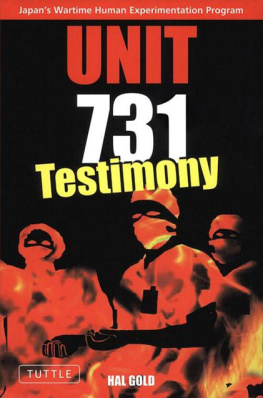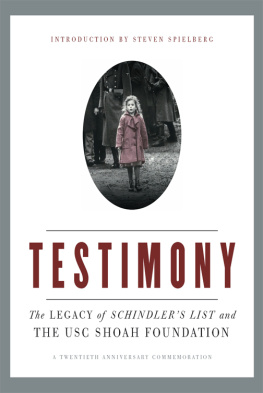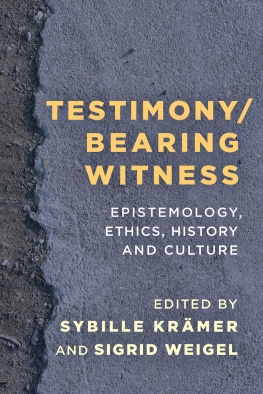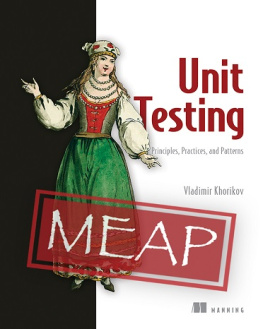Hal Gold - Unit 731: Testimony
Here you can read online Hal Gold - Unit 731: Testimony full text of the book (entire story) in english for free. Download pdf and epub, get meaning, cover and reviews about this ebook. publisher: Tuttle Publishing, genre: Non-fiction. Description of the work, (preface) as well as reviews are available. Best literature library LitArk.com created for fans of good reading and offers a wide selection of genres:
Romance novel
Science fiction
Adventure
Detective
Science
History
Home and family
Prose
Art
Politics
Computer
Non-fiction
Religion
Business
Children
Humor
Choose a favorite category and find really read worthwhile books. Enjoy immersion in the world of imagination, feel the emotions of the characters or learn something new for yourself, make an fascinating discovery.
- Book:Unit 731: Testimony
- Author:
- Publisher:Tuttle Publishing
- Genre:
- Rating:5 / 5
- Favourites:Add to favourites
- Your mark:
- 100
- 1
- 2
- 3
- 4
- 5
Unit 731: Testimony: summary, description and annotation
We offer to read an annotation, description, summary or preface (depends on what the author of the book "Unit 731: Testimony" wrote himself). If you haven't found the necessary information about the book — write in the comments, we will try to find it.
Unit 731: Testimony — read online for free the complete book (whole text) full work
Below is the text of the book, divided by pages. System saving the place of the last page read, allows you to conveniently read the book "Unit 731: Testimony" online for free, without having to search again every time where you left off. Put a bookmark, and you can go to the page where you finished reading at any time.
Font size:
Interval:
Bookmark:



(Frontispiece) This diagram gives a general overview of the experiments conducted at the Anda testing field.
Published by Tuttle Publishing, an imprint of Periplus Editions (HK) Ltd.
www.tuttlepublishing.com
Copyright 1997 Hal Gold.
All rights reserved.
LCC Card No. 95060907
ISBN 978-1-4629-0082-4
First edition, 1996
Distributed by:
North America, Latin America & Europe
Tuttle Publishing
364 Innovation Drive,
North Clarendon, VT 05759-9436 U.S.A.
Tel: 1 (802) 773-8930; Fax: 1 (802) 773-6993
info@tuttlepublishing.com
www.tuttlepublishing.com
Japan
Tuttle Publishing
Yaekari Building, 3rd Floor, 5-4-12 Osaki,
Shinagawa-ku, Tokyo 141 0032
Tel: (81)3 5437-0171; Fax: (81) 3 5437-0755
sales@tuttle.co.jp
www.tuttle.co.jp
Asia Pacific
Berkeley Books Pte. Ltd.
61 Tai Seng, Avenue, #02-12
Singapore 534167
Tel: (65) 6280-1330
Fax: (65) 6280-6290
inquiries@periplus.com.sg
www.periplus.com
14 13 12 11 1104TP
11 10 9 8 7
Printed in Singapore
TUTTLE PUBLISHING is a registered trademark of Tuttle Publishing, a division of Periplus Editions (HK) Ltd
Table of Contents

| 8 |
| 9 |
| 17 |
| 17 |
| 23 |
| 26 |
| 29 |
| 32 |
| 32 |
| 36 |
| 38 |
| 48 |
| 59 |
| 62 |
| 67 |
| 67 |
| 70 |
| 86 |
| 86 |
| 92 |
| 94 |
| 101 |
| 116 |
| 117 |
| 123 |
| 126 |
| 139 |
| 141 |
| 147 |
| 150 |
| 152 |
| 159 |
| 166 |
| 175 |
| 178 |
| 188 |
| 189 |
| 198 |
| 200 |
| 204 |
| 214 |
| 219 |
| 221 |
| 222 |
| 227 |
| 234 |
| 235 |
| 236 |
| 239 |
| 241 |
| 241 |
| 243 |
| 244 |
| 251 |
Acknowledgments

Several people deserve to be mentioned here for the invaluable aid which they rendered in the creation of this book. Testimonies came to the author in the form of faxes or photocopies through the generous cooperation of the Secretariat of the Central Organizing Committee for the Unit 731 Exhibitions in Tokyo. Professor Eda Kenji and Professor Eda Izumi of Kyoto also assisted me in accumulating these materials. Ota Masakatsu of Kyodo News Service provided valuable information also.
Finally, I wish to extend my sincerest thanks to my editor, David Friedman, whose finely tuned editorial eye, disdain for rest, and familiarity with Japanese language and history were invaluable in turning my manuscript into a book.
Foreword

Some four decades following the end of World War II, details concerning the Imperial Japanese Army's Unit 731, which researched and conducted biological warfare, began surfacing with startling impact. Information about this outfit, at whose hands an estimated three thousand Manchurians, Chinese, Russians, Koreans, Europeans, and Americans were killed, had remained largely hidden over the years, either by governmental control or a code of silence adhered to by its former members themselves. Then, newly revealed information stirred interest in an era which Japanese officialdom has been trying to wash away with the detergent of neglect. Japan has been told to leave the past behind and move ahead told to new ties of friendship and commerce with other countries. Yet while business ties develop, and amity is proclaimed to be spreading, old facts emerging as recent revelations increase their magnetic attraction and pull us into a reexamination of what happened thenand again incite us into debates of how and why.
It can be argued that probably no school system anywhere teaches true history; only the degree of rearrangment varies. For the years during which the research units were active, the chasm between history and Japan's official stance yawns wide. For years, Unit 731 "did not exist." Requests and demands not just for monetary compensation but for mere recognition of history and apology have been brushed away, turned down because "compensation has been made at government levels." Instead, Japan offers its dedication to "world peace" with statements that are as vague as they are eloquent.
Information on Japan's consumption of live human beings as biological test material has been surfacing for many years now. As with the comfort women issue, however, there has never been a jolt of sufficient voltage to rock the national government into acts of contrition or compensation. Rather, it has been local governments who have opened their eyes to history. The efforts of local governments, in conjunction with high degrees of volunteer activity in their areas, can be credited with bringing the Unit 731 Exhibition before the eyes of Japanese in sixty-one locations over the course of a year and a half. The exhibition, in whose final days this book was begun, was arranged by a central organizing committee in Tokyo, and each locality which wanted to plan a local exhibition had to raise its own funds and find its own venue. There was, of course, an admission fee to enter the exhibit, and so for the visitors it could be considered a self-financed course in the history omitted by orthodox education.
The shock to the Japanese people was predictable. In spite of the occasional documentary coverage or newspaper article, Unit 731 was largely unknown and unthought of. It sat safely outside the scope of the consciousness of most Japanese. True, some attention was drawn to Unit 731 when the Japanese government was taken to court for not permitting factual accounts of it in school textbooks, but even those with some knowledge of the Ishii organization had their eyes opened at the exhibits.
Several factors have conspired to keep Unit 731's activities from receiving the attention they so richly deserve. The decades of concealment of the outfit's history were partly the fruit of the Japanese central government's reputed skill at inactivity, along with its priority on avoiding all manners of controversy, whether domestic or international. Evidence also failed to surface simply because there were no survivors among the victims of Unit 731; all were eliminated before the end of the war. Then, there was the combination order-threat by commanding general Ishii Shiro himself that former unit members were to "take the secret to the grave." Obedience to the command was probably not at all difficult for those surviving Japanese members of the unit who could have borne witness but would have felt scalpels turned in their own hearts were their children to ask, "Daddy! How could you do something like that?"and feel it even more acutely in their later years when the question would be prefaced with "Grandpa."
Next pageFont size:
Interval:
Bookmark:
Similar books «Unit 731: Testimony»
Look at similar books to Unit 731: Testimony. We have selected literature similar in name and meaning in the hope of providing readers with more options to find new, interesting, not yet read works.
Discussion, reviews of the book Unit 731: Testimony and just readers' own opinions. Leave your comments, write what you think about the work, its meaning or the main characters. Specify what exactly you liked and what you didn't like, and why you think so.









